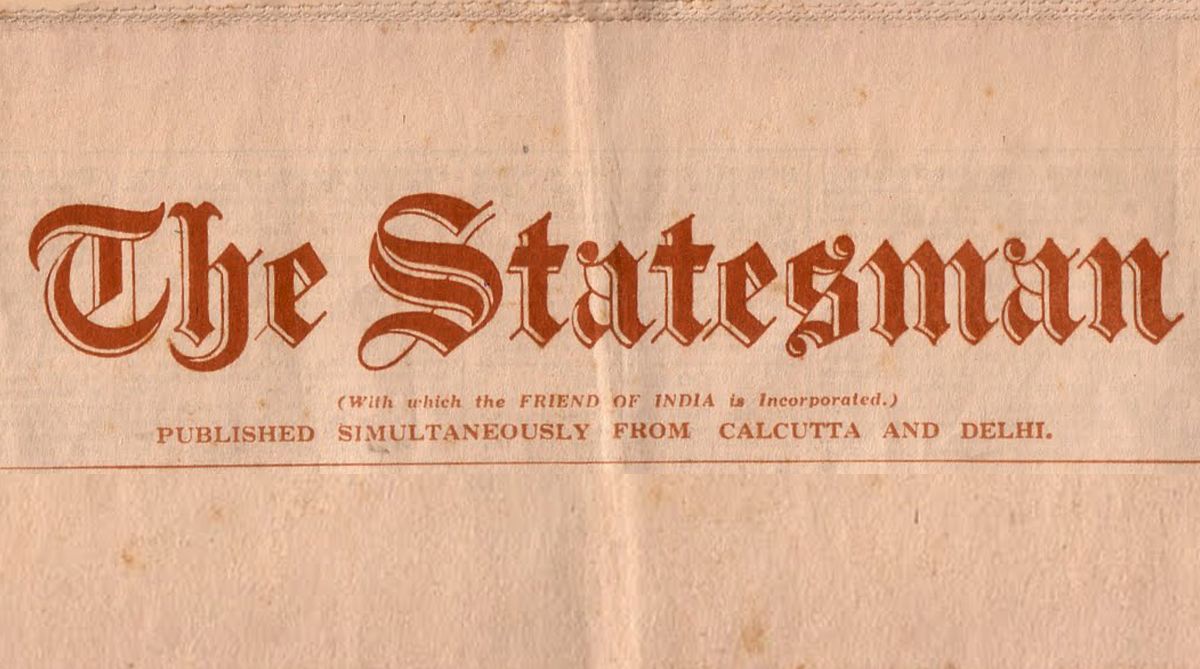A New Day, A New Dawn
There is a surprise for the readers. A special Poila Boishakh gift from none other than West Bengal chief minister Mamata Banerjee. Who has written a piece for this special edition.
On this day a century ago, these were some of the news items The Statesman readers got to read about India and the world.

OCCASIONAL NOTE
More than two years ago Colonel House, the confidant and representative of President Wilson, announced to the world that Germany was governed by madmen. If it be true, as the French Under-Secretary for War has just declared in the Chamber – and it is impossible to discredit the statement – that the condition of the Allied prisoners in Germany has become worse since the signing of the armistice, it would appear that Colonel House’s trenchant phrase still applies to the situation, and may perhaps be extended so as to include the German people also. The only possible alternative is to suppose that a great many Germans, including the General Staff, cannot realise that they are beaten, even although they have given up all they are fighting for and Allied troops are already on the frontier of the Fatherland. If that is the case, and the Hun is too dazed by events to grasp the full significance of the German defeat, it is doubtful whether the outspoken language which the British Government have just addressed to the General Staff on the subject of responsibility and reparation will have the desired effect; but once the Allies are in occupation of the three bridgeheads on the Rhine, giving them absolute command of the river, and therefore complete control over Germany itself, it will be in their power to bring their meaning home to the vanquished in a manner which even the Hun will understand.
THE BOSE INSTITUTE
Advertisement
The first anniversary meeting of the Bose Institute was held last evening in the Institute’s Hall, on Upper Circular Road. His Excellency the Governor presided and there was a distinguished gathering, including Sir William Meyer, Justice Sir Ashutosh Chowdhry and others. His Excellency, in opening the proceedings, after paying tribute to the work of Sir Jagadish Bose, went on to say that the Institute had at present, with the grants of the Government of India and Bengal and with the gift of the founder (Sir Jagadish) a total endowment of something like 10 and half lakhs of rupees. That was a very fair beginning, but His Excellency hoped that it was only a beginning. They needed still greater endowments in order to carry on adequately the work of research which was the special object of the Institute. Sir Jagadish Bose then delivered his lecture on “The Control of the Nervous Impulse” which was illustrated by experiments. Sir J.C. Bose in the course of his address said that the propagation of nervous impulse was a phenomenon of transmission of molecular disturbance.
INTER-CASTE MARRIAGE BILL
In accordance with a notice that a public meeting of Hindu citizens of Madras would be held to protest against Mr. Patel’s Inter-caste Marriage Bill, and that those who did not sympathise with the provisions of the Bill were requested to attend, a meeting was held on the 29th at the Victoria Public Hall, Madras, Dewan Bahadur M.C. Parthasarathy Iyengar presiding. After a short speech by the chairman, who explained the notice convening the meeting and pointed out that those who did not sympathise with the object of the meeting would not be allowed to speak, Mr. R. Swaminatha Iyer moved the first resolution which began as follows: The Hindu citizens of Madras in public meeting assembled. The moves was not allowed to finish reading his resolution, and the chairman was asked by several members of the audience to amend the resolution so as to confine the protest to a certain section of the Hindu community and not to all. Owing to the confusion that prevailed the chairman sought the aid of the police and the meeting was ultimately dissolved.
SEA TRAVEL FOR WOMEN & CHILDREN
The Admiralty have intimated that restrictions on sea travel have been removed in respect of women and children. They are now eligible to travel by any route. Passports will, however, still be required and they must be endorsed as heretofore. Owing, however, to the large number of intending passengers the shortage of shipping and prospective demobilisation requirements the Government of India have decided to introduce at an early date a system of control of passages to all European ports. The details of the scheme are being worked out and will be announced shortly.
THE DOVER BARRAGE
The Dover barrage has been removed. The barrage formerly consisted of nets between the British and French shores to guard the entrance to the Channel and prevent the entrance of submarines. This was a difficult business, as it was necessary to keep the passage partially open for merchant shipping. The nets alone did not fulfill their object, and a barrage of mines and other buoyed obstacles was fixed up in 1917 and was constantly subject to attack by enemy destroyers from the Belgian ports in their effort to destroy the barrage.
Advertisement